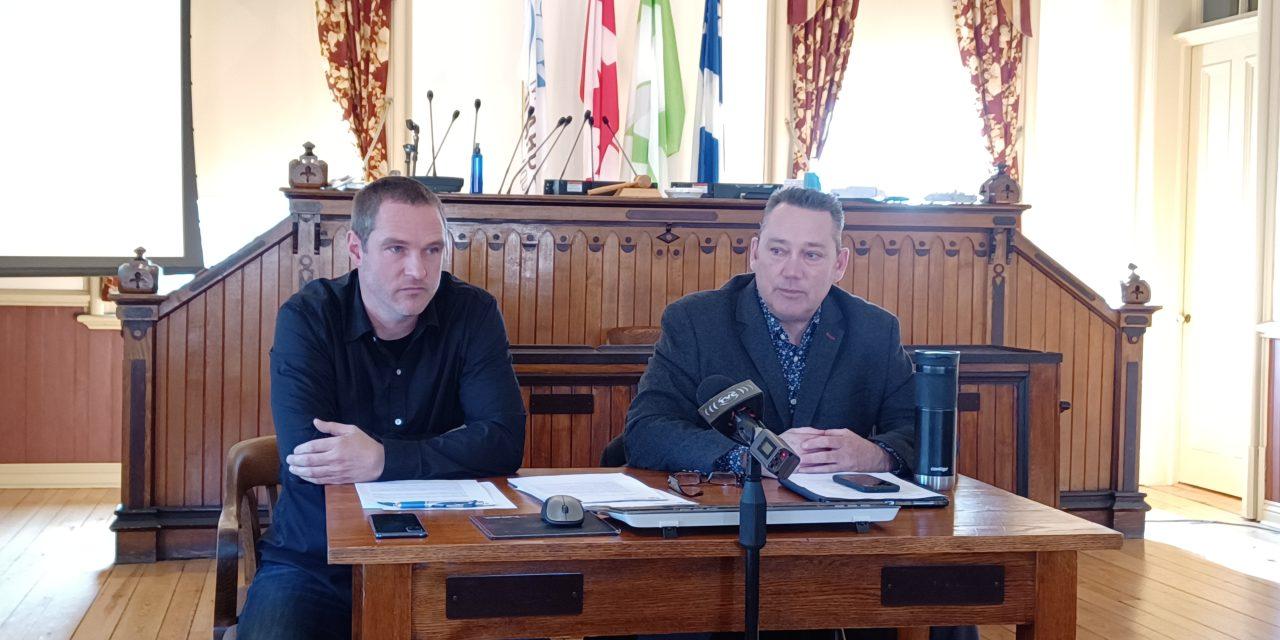The Municipalité régional de comté (MRC) d’Argenteuil has adopted its budget for 2023, and it is 13 per cent larger than in 2022.
MRC council approved the budget unanimously when it met on November 23, 2022. The total value of the 2023 budget is $18,800,395. The budget includes the $4,784,288 budget for Fibre Argenteuil – the not-for-profit internet provider owned by the regional government.
The total 2022 MRC d’Argenteuil budget was $16,374,177, which included $3,997,412 for Fibre Argenteuil. The 13 per cent differences between the 2022 and 2023 budgets mean the regional government will spend $2,426,218 more in 2023.
The balanced budget for 2023 was approved keeping in mind the current economic challenges resulting from the pandemic and high inflation.
“In the context of inflation, it was a difficult budget,” said MRC d’Argenteuil Prefect Scott Pearce. He remarked how the recent inflation rate for the Montréal region was 6.8 per cent from September 2021 to September 2022.
In 2023, the MRC d’Argenteuil will collect $210,472 or 4.5 per cent more from its nine member municipalities than was collected in 2022. The 2022 total was $4,681,401 and the total for 2023 is $4,891,873.
The MRC d’Argenteuil does not levy taxes directly from its member municipalities. Instead, it collects a quota from each municipality, based on a combination of the municipal assessment value and the needs for MRC services in each municipality. For example, the MRC provides engineering services for all nine municipalities. The municipal quota totals 34.9 per cent of the MRC’s revenue.
Gore and Brownsburg-Chatham are facing the highest increases in their contribution to the MRC d’Argenteuil in 2023. Gore’s contribution is increasing by 10.32 per cent from $378,723 in 2022 to $417,800 for 2023. Brownsburg-Chatham will pay 10.23 per cent more to the regional government in 2023 with a total contribution of $1,043,957. Brownsburg-Chatham’s 2022 contribution was $947,056.
Lachute has the third-highest contribution increase to the MRC d’Argenteuil in 2023. In 2022, Lachute’s quota was $1,422,984. It will be 7.28 per cent more in 2023 at $1,526,648.
Among the nine municipalities, Lachute contribute the most to the MRC d’Argenteuil, followed by Brownsburg-Chatham, and St-André-d’Argenteuil. However, St-André-d’Argenteuil and Grenville-sur-la-Rouge’s MRC contributions will decrease in 2023.
In 2022, Grenville-sur-la-Rouge’s quota was $449,624. It is decreasing by 5.13 per cent or $23,071 to $426,553. The MRC quota from St-Andre-d’Argenteuil in 2022 was $456,123. It is decreasing by 4.03 per cent in 2023 to $437,737.
The remaining sources of revenue for the MRC d’Argenteuil in 2023 will be grants and subsidies from the Government of Québec, the Government of Canada, and accumulated reserves and surpluses. The grants the MRC d’Argenteuil and other regional governments across Québec receive from the provincial government are a result of the 2020-2024 Fiscal Pact which funds the increased responsibilities regional governments have for regional development, innovation, revitalization, and intermunicipal cooperation.
There are additional subsidies for the deployment of high-speed internet, municipal asset management, local road work planning, adapted and collective transportation, the community agriculture project, territorial marketing, youth, immigration, crime prevention, healthy lifestyles, promotion of the arts and culture, protection of built heritage, protection and enhancement of natural environments, implementation of the agricultural zone development plan, and mitigating the effects of climate change.
Fibre Argenteuil progress
In 2017, the MRC d’Argenteuil and Fibre Argenteuil began the project to bring high-speed, fibre-optic internet to all areas of the MRC not served by for-profit providers such as Bell Canada and Videotron. The project is to be finished by the end of spring, 2023.
Initially, the Québec and federal governments provided $9.3 million for the effort, and the MRC provided $6.7 million. Delays were encountered during the process involving shared use of poles with Hydro-Québec and Bell Canada.
“Gore residents are very content with the service,” remarked Pearce, who also serves as Mayor of Gore.


